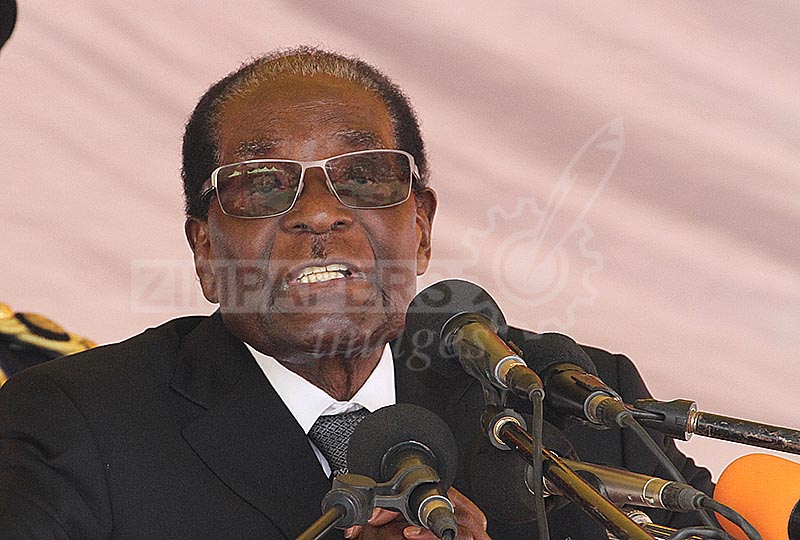Masunda comes up with unique novel
Beaven Tapureta Bookshelf
Shingirai L Masunda’s debut novel “Imagine Ghosts Telling Tales in Front of Smoky Mirrors” (2017, Ouen Press, UK) is one such book that will flummox the ordinary reader with its style and subjects.
Masango is an experimentalist. The sudden shifts between dreamlike scenes and reality, the way he time the story and uses the time as chapters, for instance, a chapter simply tagged “Yesterday” or “Seventeen years to now, less a day” and then irregularly further broken into hours, the seemingly non-existent plot, and then, more vexing and challenging, the narrator’s weird beliefs and ideas! Yet something embodied in the poetic, meditative sound of language keeps beckoning to be followed.
The novel’s long title herald the somewhat gothic features inside, “ghosts” and “smoky mirrors” are images scary and as you read through the story, you confront brutality, blood, death, mysticism, and psychological discord. The Gothic style in literature speaks to our fears, our weaknesses, and challenges us through dismantling those beliefs and ideas we hold valid within our different cultural or religious worlds.
But what will challenge particularly the African reader is, in short, the novel’s subjects he/she considers taboo like homosexuality. The unconventional style used to tell the story is rather captivating.
The narrator is named Mukundi, a famous published writer, nicknamed “Inspired Teacher Solomon” because of his dissent over certain issues, and possibly his questionable mental status. In literary terms, he is the dramatised narrator, that is, while he tells the story, he is also a character in it.
Mukundi takes the reader backstage where he reveals his life’s dark, erotic, violent experiences, switching from one memory to another and back to the present as he dominates the story.
At some point he’s gang-raped by a group of women who gives him a lift on his way from consulting a n’anga. The purpose of visiting the n’anga was to get a charm to boost sales for his second novel “When The Slave Ruled The Master”. What an over-ambitious writer! To get the charm he had to bring the n’anga pair of fresh human eyes – and that saw him murdering Fadzai his girlfriend though there seem to be mixed reasons for killing her.
Within and between the scenes Mukundi philosophises, and it seems unavoidable to philosophise so as to justify his incomprehensible thoughts and actions.
The lack of feeling and/or confidence he musters as he brutally kills Fadzai or Mother is astonishing. After murdering Mother, he describes her butchered head: “It wasn’t that awful sight. It looked like the toppings of a vegetarian pizza, with a lot of tomato paste . . . ”
And not only the murders, but Mukundi’s source of his current psychological problem, as one sinks deeper into the story, seem also to stem from his relationship with his Dad. He identifies with the label given him by the media, that he is “the victim of a gay-psycho father and naïve overlooking mother”.
The vivid descriptions of his homosexual fondness for his Dad are challenging to the culturally reserved – and this is one of the areas where the novel gets bumpy. Zimbabwe is one of the African countries against the practice. True, with the descriptions of gay intimacy in the novel, the author might have had problems publishing this book locally. Now that it is here, how will the local reader take it – when a father has a gay relationship with son and son (Mukundi), after Dad’s imprisonment and death, longs for Dad as if he is longing for a woman?
The last time Bookshelf read a fictionalized story about same-sex relationships was in 2015 when Chitsime J Milton published his short novel “Not In Zimbabwe” (Forteworx, Harare) which is about Tongai, a homosexual, who wishes to wed his male partner but African culture strongly fights against him. Tongai as a character is restricted in his actions and voice, unlike Mukundi who has all the space and time to go down fighting for his sexual preference. As a famous writer, Mukundi has the privilege to be called for radio interviews in which he airs his views.
As noted before, the story also subverts the conventional structure of plot but the subversion is highly appealing. There are various other issues which Mukundi questions, sometimes displaying a sharp informed intelligence, yet primarily going against the commonly accepted views. As it is, this novel doesn’t sound like a debut; it reflects a writer who has done his work very well.
The author, Shingirai Masunda, is a Zimbabwean, and apart from writing, he trained as an auditor and fraud analyst. Meanwhile, Bookshelf would like to remind readers about the official launch of the book “Masasi aChinoz” on Friday, January 26, at the Harare City Library from 5pm.










Comments